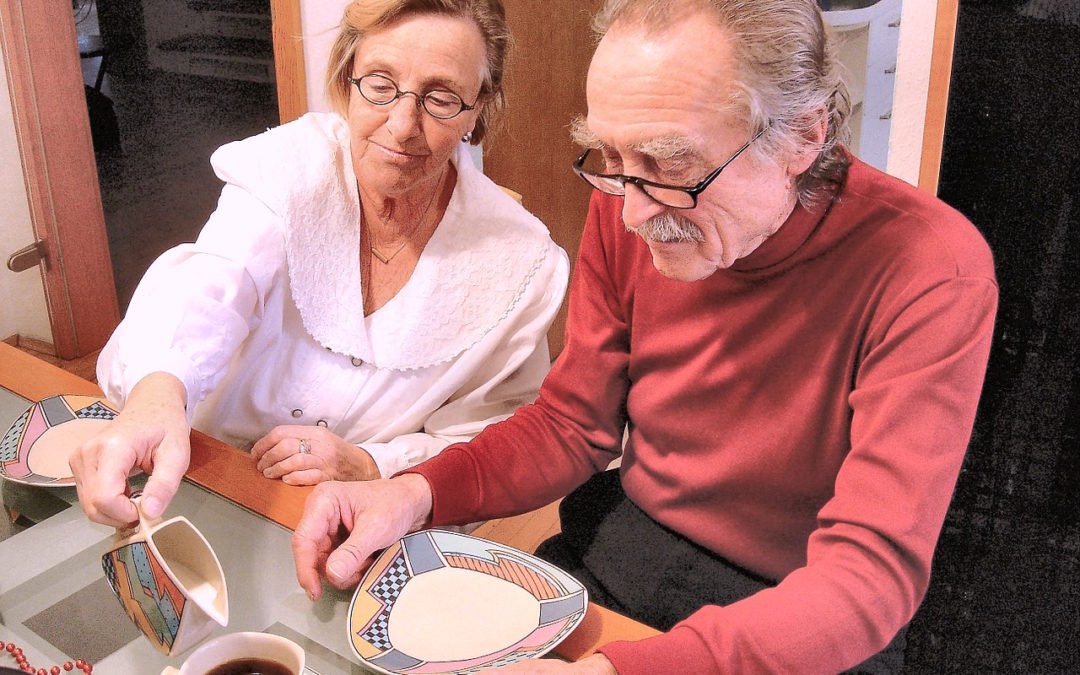It’s not uncommon for older adults to experience a loss of appetite. If you or a loved one have less interest in eating, it is important to find out the cause. While it may be a medical condition or an indicator of malnutrition, there are also several common sense explanations for loss of appetite in the elderly.
What Causes Loss of Appetite in the Elderly?
We lose taste buds as we age and the flavors of foods are diminished. According to the Mayo Clinic, this loss of taste and a diminished sense of smell both can contribute to loss of appetite. Being on a restricted diet, the reduction of salt, and other factors can also cause a senior to lose interest in food. Some medications can also produce odd tastes or affect the stomach, resulting in loss of appetite in the elderly.
Jill Herbert, RD, LDN is a registered dietician currently working at SeniorLIFE in York, PA. Herbert has also worked as a dietetic technician in a long-term senior care facility and has considerable experience working with seniors’ eating issues. “There are a number of other reasons for loss of appetite in an elderly adult,” says Herbert.
Some signs of loss of appetite and factors to be aware of:
- Difficulty eating due to ill-fitting dentures or loss of teeth
- Eating alone, possibly due to the loss of a spouse
- Having to cook for themselves which may result in eating frozen meals that aren’t enjoyable
- Loss of ability to perform activities of daily living (ADLs) due to less functional mobility (i.e., it may be hard for them to walk around the kitchen, carry food to the table, or to clean up after meals)
- They may be self-restricting due to bowel or bladder incontinence
- Concern over not having enough money for food
- Possible depression
It’s important to ask questions and observe the behavior of a senior whose appetite you’ve noticed has declined.
When Should Your Elderly Loved One’s Loss of Appetite Concern You?
“From a clinical standpoint, loss of appetite in the elderly is only considered problematic if it leads to significant weight loss. But loss of muscle, resulting in weakness and dehydration are also two very serious medical conditions to watch for,” says Herbert. “Sometimes supplements, such as Boost or Ensure [or other appetite stimulants] are necessary to help prevent further weight loss.” But if these conditions aren’t present, there are many ways to address a senior’s loss of appetite.
How to Counteract Loss of Appetite in the Elderly
Herbert suggests the following tips to stimulate the appetite of your elderly loved one:
- Offer favorite foods, but realize they may not taste the same to them.
- Offer modified textures, such as chopped meats to increase ease of consuming. (Though usually people don’t respond well to modified textures.)
- Serve meals in community with others.
- Allow additional time for the senior to eat their meal.
- Use special utensils, plates, and bowls, etc., that make the process of eating easier.
- Offer frequent, small meals to prevent the senior from being overwhelmed by the amount of food or the task of eating.
Herbert suggests being creative when planning meals for someone with decreased appetite. “Try things like finger foods if the senior has difficulty managing utensils,” she says.
For more tips on helping seniors eat regular, nutritious meals, contact the professionals at Friendly Faces Senior Care at 281-302-4138. Learn how our trusted senior care in League City, TX and the surrounding areas can help an older adult you love maintain healthy eating habits, as well as an active and engaged lifestyle.

